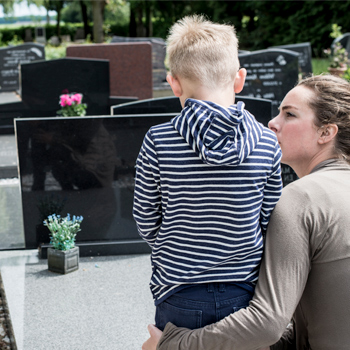
If you lose a loved one because of someone else’s negligent behavior, you have the option of holding them liable in a wrongful death claim. Learn what this type of lawsuit is, the steps you should take to file one and how the statute of limitations can impact your claim.
What Is a Wrongful Death Lawsuit?
A wrongful death lawsuit is a legal claim you file when someone dies as a result of another person’s negligence or wrongful act. When an individual dies due to another party’s negligence, that party may face charges in a criminal suit. However, the family of the deceased has the option of pursuing a separate civil remedy by filing a wrongful death lawsuit against any responsible parties, whether that is a person, a corporation, or an institution. An important consideration for filing this kind of lawsuit is determining whether you have the authorization to file. Every state has its own laws that detail who has the right to file a claim. However, some of the most common relatives who are entitled to file a wrongful death lawsuit include:
- Surviving spouse
- Children
- Siblings
- Parents
- Other relatives
That said, in some states, only the executor of the deceased’s estate has the right to file a lawsuit.
How the Statute of Limitations Can Impact a Wrongful Death Lawsuit
Every state places a limit on the amount of time that someone has to file a wrongful death lawsuit, known as a “statute of limitations.” Depending on your state, that length of time can range anywhere from one year to 10 years. In most cases, the clock for the statute of limitations starts ticking on the date your loved one passes. If you do not file your claim before the statute of limitations runs out, you are generally barred from recovering any amount of compensation. There are some rare cases where the deadline can be extended or tolled.
How Can You File a Wrongful Death Lawsuit?
If you are within the statute of limitations, the next step is to have your lawyer file documents commencing the civil lawsuit. It’s best to have a lawyer file these on your behalf because they are going to be most familiar with how any complicating factors can affect your case.
Your lawyer will file all relevant documents, providing the defendant with factual and legal grounds for the lawsuit. This includes notifying the defendant that they are being sued. The parties then typically exchange all relevant documents and take depositions of key witnesses, in a process known as discovery.
Once the lawsuit has been filed, the defendant must be provided all relevant documents in a procedure known as service of process. Every state has its own rules for how the service of process should be handled.
Recoverable Damages in a Wrongful Death Lawsuit
Remember that you will only recover your financial losses if you win your case. And, while all states allow the family of the deceased to recover some form of financial losses if they win their case, the specific recoverable damages can vary somewhat from one state to the next. Some types of damages in these lawsuits include:
- Funeral and burial expenses
- Wages and benefits previously provided by the deceased
- Medical bills accrued by the deceased before death
- Loss of financial support
- Loss of prospective inheritance
- Lifetime earning capacity of the deceased
- Pain and suffering the deceased experienced before death
- Loss of society and companionship
- Pain and suffering endured by the family as a result of losing a loved one
- Loss of consortium
- Punitive damages
Not all states allow for punitive damages and, even when they are allowed, some states place limitations on the amount of money that can be awarded in punitive damages in a wrongful death lawsuit. These damages are uncommon, but they are periodically awarded if the jury finds it appropriate to punish the defendant for behavior that is particularly egregious.
How a Lawyer Can Help With Your Case
A wrongful death law firm can help you navigate the complex process of filing a lawsuit. They can file the complaint of petition, providing the defendant with notice for the legal grounds of the case. A wrongful death lawyer can also file a summons notifying the defendant that they’re being sued.
A lawyer can also help gather evidence to assist you in building a strong case. They can tap into their network of medical experts and other professionals who can help determine what events led to the victim’s death and build a strong case. A lawyer can also calculate the full value of your family’s damages, including the cost of non-economic damages like pain and suffering. This helps you to understand what a fair settlement for your lawsuit could look like. A law firm can negotiate with the defendant’s insurance company, their lawyer or, if necessary, fight for your rights at trial to recover damages.
Why Choose Janet, Janet & Suggs to Help with Your Wrongful Death Case
The team at JJS can help you navigate the complex process of filing a wrongful death lawsuit. We don’t shy away from tough, complex cases. Our track record of success has resulted in over $3 billion in verdicts and settlements for our clients. In our 40+ year history, we have developed a reputation for treating every client with the compassion and care we would want for our own families. If you’re ready to get started, contact JJS today for a free review of your wrongful death claim.
